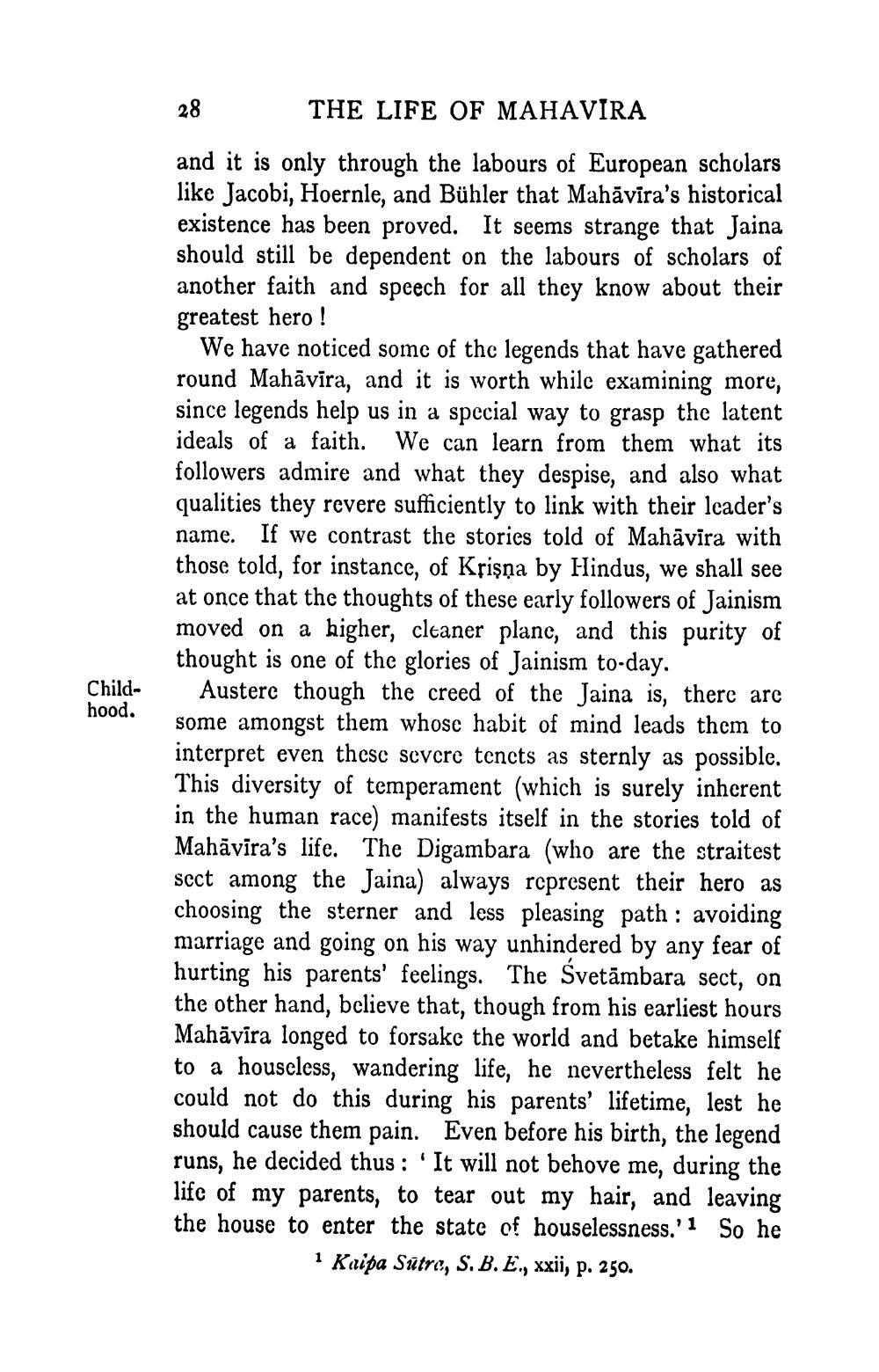________________
28
THE LIFE OF MAHAVIRA
Childhood.
and it is only through the labours of European scholars like Jacobi, Hoernle, and Bühler that Mahāvira's historical existence has been proved. It seems strange that Jaina should still be dependent on the labours of scholars of another faith and speech for all they know about their greatest hero!
We have noticed some of the legends that have gathered round Mahāvīra, and it is worth while examining more, since legends help us in a special way to grasp the latent ideals of a faith. We can learn from them what its followers admire and what they despise, and also what qualities they revere sufficiently to link with their leader's name. If we contrast the stories told of Mahāvira with those told, for instance, of Krişņa by Hindus, we shall see at once that the thoughts of these early followers of Jainism moved on a higher, cleaner plane, and this purity of thought is one of the glories of Jainism to-day.
Austere though the creed of the Jaina is, there are some amongst them whose habit of mind leads them to interpret even thesc scvcre tencts as sternly as possible. This diversity of temperament (which is surely inherent in the human race) manifests itself in the stories told of Mahāvīra's life. The Digambara (who are the straitest scct among the Jaina) always represent their hero as choosing the sterner and less pleasing path : avoiding marriage and going on his way unhindered by any fear of hurting his parents' feelings. The Svetāmbara sect, on the other hand, believe that, though from his earliest hours Mahāvīra longed to forsake the world and betake himself to a houseless, wandering life, he nevertheless felt he could not do this during his parents' lifetime, lest he should cause them pain. Even before his birth, the legend runs, he decided thus : 'It will not behove me, during the life of my parents, to tear out my hair, and leaving the house to enter the state of houselessness.'1 So he
1 Kripa Sütre, S.B.E., xxii, p. 250.




